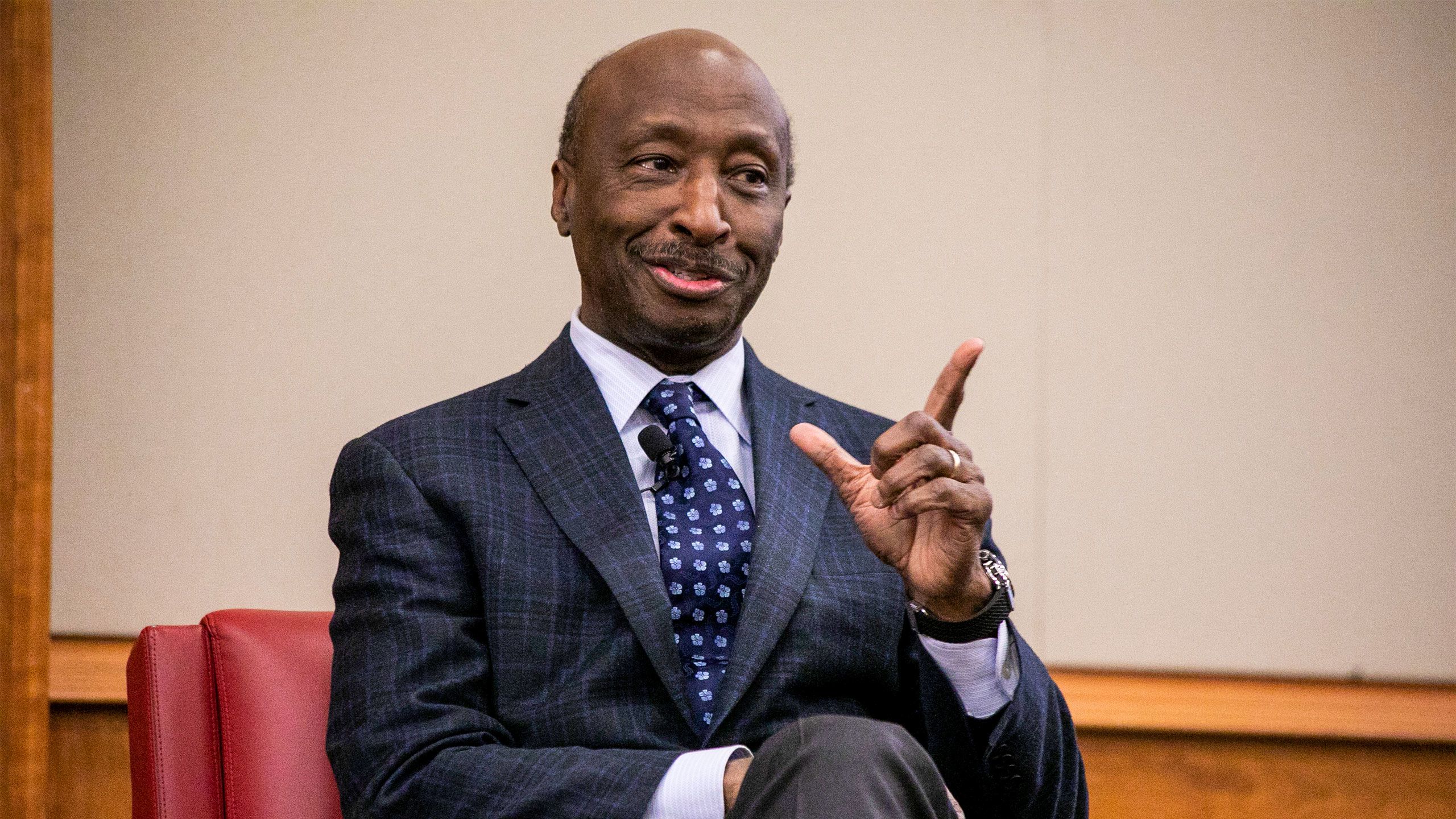Leading the Charge for Change
School of Business launches new lecture series with former Merck CEO Kenneth C. Frazier

On Thursday, March 30, Rutgers School of Business–Camden welcomed Kenneth C. Frazier, retired chairman and CEO of Merck & Co., Inc., as part of the inaugural Eminent Business Leader speaker series. Frazier was the first African American to lead a major pharmaceutical company and one of just a handful to have run a Fortune 500 company. Over the course of an hour, he shared perspectives on a wide range of topics, including his personal and professional journey, the role of business leaders as catalysts for social good, building equitable opportunities through family-sustaining jobs, and leading change.
“Our goal is to provide our students, faculty, and the community with opportunities to hear and grow from business leaders who have led transformative change,” said Monica Adya, Dean of the Rutgers School of Business–Camden. “Kenneth C. Frazier is one of the best and brightest business minds of our time, and his passion for social justice made him an ideal fit for what we hope our students will do someday as leaders themselves.”
The Eminent Business Leader Speaker series, developed as part of a larger strategic plan for the School of Business, is expected to be an annual event designed to drive engagement and provide opportunities for students to connect and network with business leaders and alumni.
Frazier grew up in North Philadelphia and was raised by his father after his mother died when he was very young. He shared that the enduring memory of his childhood was the smell of his father’s shaving cream as he dressed in the morning.
"My father taught me the importance and dignity of work and the importance of earned success," Frazier said. Seeing his father, who had just three years of elementary education, support the family on the salary he earned as a janitor helped Frazier understand that he was both empowered and obligated to pursue his education and find his way in the world.
Frazier joined Merck in 1992 as the company’s general counsel. Moving steadily into successive leadership roles, Frazier became president of Merck in 2010, joining the board of directors as CEO in 2011.
“My role was to create an environment where science could thrive, where we could attract and retain the best scientists,” said Frazier. During his time at Merck, he was a champion for research and development, believing that this investment was essential to maintaining the organization's values and ideals. He shared that to be successful, however, he had to get comfortable with acknowledging what he didn’t know.
"People expect leaders to have all the answers, but it’s the employees who understand how to get to the answers," said Frazier. "Once you learn as a leader that you don't have to know everything, you become better."
One of the more public moments during his time at Merck was his decision to resign from President Trump’s American Manufacturing Council in 2017 after the violence in Charlottesville and President Trump's subsequent remarks. "I think words and actions have consequences,” said Frazier. “As a matter of personal conscience, I could not remain." The Merck board unanimously supported his actions and the public statement issued upon his resignation from the Council.
Frazier shared that it was in the wake of the murder of George Floyd that he was motivated to act. Days after Floyd’s murder, Frazier reached out to Ken Chenault, former chairman and CEO of American Express, to discuss how corporations could take meaningful and sustained action for racial justice and equity in America.
“People think of me as the activist CEO,” Frazier said. "But there is no use in having a principle if you're unwilling to pay the cost. If you won't pay the cost for it, it's a preference, not a principle."

Creative Design: Douglas Shelton
Photography: Ron Downes Jr.